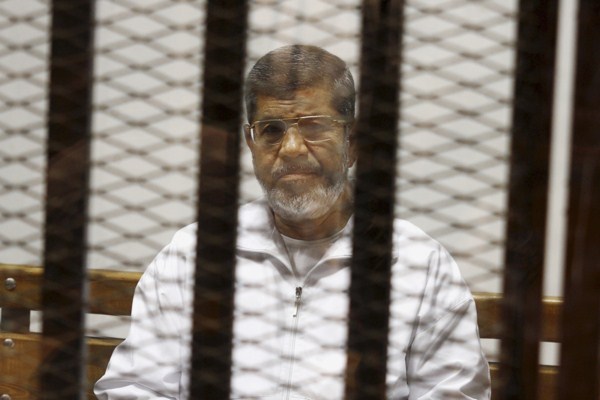When a democratically elected president is forcibly removed from power and sentenced to prison less than two years later, the optics alone are troubling. Thus, when Egypt’s former President Mohammed Morsi was sentenced to 20 years in prison last month, along with dozens of other former Morsi regime officials, some of whom received the death penalty, Egyptian and international legal experts rightfully questioned the impartiality of the judges presiding over the cases. Such concerns are corroborated by the recent sentencing of deposed President Hosni Mubarak to a mere three years in prison—roughly equivalent to his time already served—for embezzling over $16 million of state funds to build his family private villas.
Since the forced removal in July 2013 of Morsi and his regime, which led to the rise of President Abdel-Fattah el-Sisi and his military-backed government, a select group of judges have overseen trials where revolutionary youth, activists, journalists and Muslim Brotherhood supporters are accused of violating sweeping criminal statutes that effectively quash political dissent. Manipulating opaque case-assignment processes, the judicial leadership has created special circuits within the ordinary judiciary to adjudicate cases involving national security—a moniker for the government’s counterrevolutionary efforts. As a result, judges deemed to be loyalists are handpicked by the chief of the appellate or district court to adjudicate these high-profile cases considered a threat to core interests of el-Sisi’s regime. In the process, political disputes have moved from the streets to the courts.
While the judicialization of politics is nothing new in Egypt, the use of the ordinary courts to do the government’s dirty work of eliminating political opposition is. Under Mubarak, for example, special state security courts conducted kangaroo trials to convict thousands of Islamist political dissenters under the pretext of countering terrorism. The judges were appointed by the executive branch, many of whom had strong ties to the military or domestic security forces. Similarly, military courts were used to swiftly eliminate political opposition in closed proceedings.

